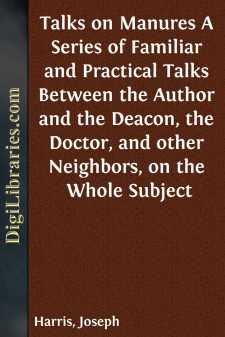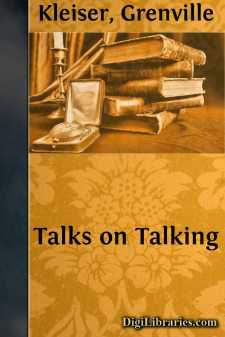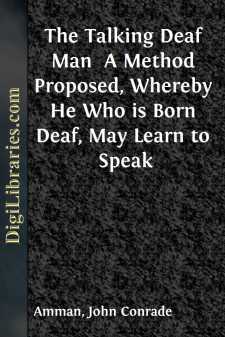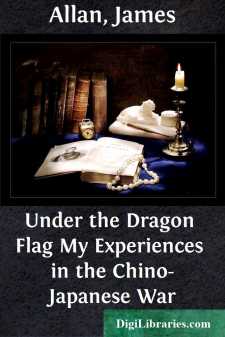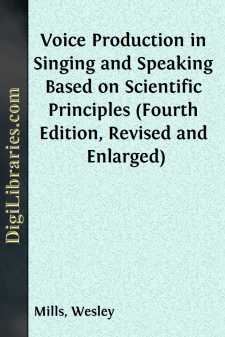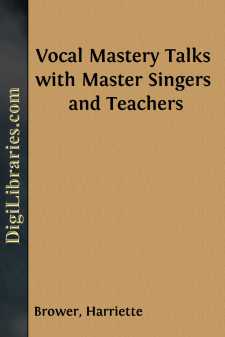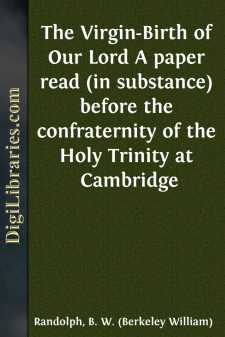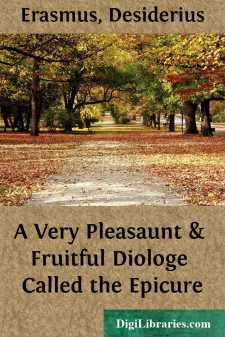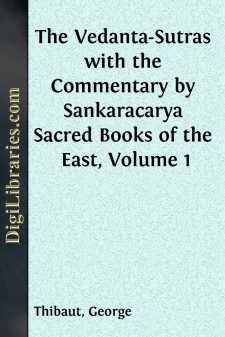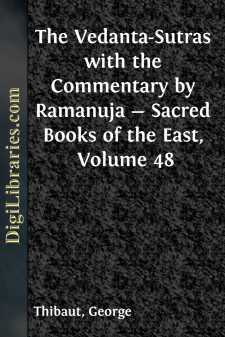Non-Classifiable
- Non-Classifiable 1768
Non-Classifiable Books
Sort by:
by:
Joseph Harris
INTRODUCTION TO NEW AND ENLARGED EDITION. Sir John Bennet Lawes kindly consented to write a Chapter for the new edition of this work. The Deacon, the Doctor, the Squire, Charlie and myself all felt flattered and somewhat bashful at finding ourselves in such distinguished company. I need not say that this new Chapter from the pen of the most eminent English agricultural investigator is worthy of a very...
more...
THE ART OF TALKING The charm of conversation chiefly depends upon the adaptability of the participants. It is a great accomplishment to be able to enter gently and agreeably into the moods of others, and to give way to them with grace and readiness. The spirit of conversation is oftentimes more important than the ideas expressed. What we are rather than what we say has the most permanent influence upon...
more...
CHAP. I. An Inquiry into the Nature of a Voice, and in what respect it differs from the Breath. Let no Man presume, that he shall ever attain to this noble Art, if he remain Ignorant in what it is that the nature of the Letters, as well in general, as special, doth consist; for it was this very thing which gave occasion to the composing of this small Treatise: Wherefore, before I treat of the manner of...
more...
by:
James Allan
CHAPTER I The following narrative is a record of my experiences during the late memorable war between China and Japan. Without going into any detailed account of my earlier life, some few facts concerning myself are probably necessary for the better understanding of the circumstances which led up to the events here presented. It will be obvious that I can make no claim to literary skill; I have simply...
more...
by:
Wesley Mills
CHAPTER I. THE CLAIMS AND IMPORTANCE OF VOCAL PHYSIOLOGY. To know consciously and to do with special reference to guiding principles are to be distinguished from carrying out some process without bearing in mind the why or wherefore. Science is exact and related knowledge, facts bound together by principles. Art is execution, doing, and has not necessarily any conscious reference to principles. While...
more...
by:
Harriette Brower
I THE VALUE OF WORK Enrico Caruso! The very name itself calls up visions of the greatest operatic tenor of the present generation, to those who have both heard and seen him in some of his many rôles. Or, to those who have only listened to his records, again visions of the wonderful voice, with its penetrating, vibrant, ringing quality, the impassioned delivery, which stamps every note he sings with...
more...
THE CHRISTIAN TRADITION I will therefore, without any further preface, plunge into the middle of the subject, and ask you, first of all, to consider afresh that 'throughout the Church the statement of the belief in the Virgin-Birth had its place from so early a date, and is traceable along so many different lines of evidence, as to force upon us the conclusion that, before the death of the last...
more...
HEREas manye histories of olde & auncient antiquitie, and also al godly & Christiã writers most playnely consêt together, and agree in this, that dignitie, riches, kinred, worldly pompe, and renoume, doo neither make men better, ne yet happiar, contrarie too the blynde & fonde iudgement of the most part of menne: but by the power and strength of the mynde, that is, learnyng, wysedome,and...
more...
by:
George Thibaut
INTRODUCTION. To the sacred literature of the Brahmans, in the strict sense of the term, i.e. to the Veda, there belongs a certain number of complementary works without whose assistance the student is, according to Hindu notions, unable to do more than commit the sacred texts to memory. In the first place all Vedic texts must, in order to be understood, be read together with running commentaries such...
more...
by:
George Thibaut
INTRODUCTION. In the Introduction to the first volume of the translation of the 'Vedânta-Sûtras with Sankara's Commentary' (vol. xxxiv of this Series) I have dwelt at some length on the interest which Râmânuja's Commentary may claim—as being, on the one hand, the fullest exposition of what may be called the Theistic Vedânta, and as supplying us, on the other, with means of...
more...


